Under Biya’s 43-year reign, justice has been privatized. It is not blind; it sees only what the regime permits it to see. The judiciary has become a political militia in robes — an appendage of the presidency, designed to protect power, silence dissent, and legitimize repression. From fabricated terrorism charges to the imprisonment of journalists, the courts operate as both sword and shield of tyranny.
By Ali Dan Ismael, Editor-in-Chief, The Independentist on special assignment in Yaounde
The Collapse of Justice in French Cameroon
The latest ruling by Cameroon’s Constitutional Council, rejecting all eight petitions contesting the October 12 presidential election, is neither a surprise nor a legal decision — it is an act of obedience. Once again, judges handpicked by Paul Biya have performed their ritual of judicial theatre, reciting the doctrine of “insufficient evidence” to sanctify the fraud of a dying regime.
Under Biya’s 43-year reign, justice has been privatized. It is not blind; it sees only what the regime permits it to see. The judiciary has become a political militia in robes — an appendage of the presidency, designed to protect power, silence dissent, and legitimize repression. From fabricated terrorism charges to the imprisonment of journalists, the courts operate as both sword and shield of tyranny.
Even the Catholic Church, in a rare moment of moral clarity, has urged the judges to let their verdict “reflect the will of the people.” Yet everyone knows the outcome was pre-written in the corridors of the Unity Palace. The Cameroonian justice system today is not a balance of powers — it is a balance of fear.
The Cornerstone of Ambazonia’s Rejection of the French Civil Law Structure
At the heart of Ambazonia’s political philosophy lies a clear, immutable conviction:
That the French-imposed civil law system — the very foundation of La République du Cameroun — is an aberration to human dignity and the rule of law.
This system, imported wholesale from Napoleonic authoritarianism, places the State above the citizen, not the citizen above the State. It allows arbitrary power to flow from decrees, not from justice; from privilege, not from principle.
It is a structure that has weaponized technicalities and loopholes to give absolute power to the ruling elite — power to arrest without trial, to confiscate without accountability, and to declare elections valid without evidence. Its civil code logic assumes that the government is always right and that citizens must prove their innocence against the State’s accusation — a complete inversion of justice itself.
That is why Ambazonia, grounded in the Common Law tradition of fairness, evidence, and equality before the law, categorically rejects the colonial civil law framework as incompatible with human freedom. It is not merely a legal disagreement; it is a moral divorce.
The Sham of Legal Harmonization
When Yaoundé introduced what it called the Act of Harmonization, it was marketed as a bridge between the two legal traditions — Common Law and Civil Law. In truth, it was nothing but lipstick on a pig. The so-called harmonization was simply civil law domination in a new disguise.
It claimed to create unity, but in practice, it erased diversity. It replaced the jurisprudence of evidence and procedure cherished in the former British Southern Cameroons with the bureaucratic formalism of Napoleonic decrees. In short, the Common Law was not harmonized — it was buried alive.
That is why, when the deceit became evident, lawyers across Southern Cameroons took to the streets. They were not just defending their profession; they were defending the soul of justice itself. Their protests in 2016 were not about salaries or statutes, but about survival of a legal civilization that respected the individual’s rights above the State’s power.
The world may have called it a “lawyers’ strike,” but in reality, it was a constitutional uprising — the last stand of truth against assimilation.
The Failure of the Communications Council and the Mockery of Free Speech
Parallel to the collapse of judicial integrity stands another pillar of tyranny — the National Communication Council, headed by Joe Chebongkeng, which has reduced media regulation to a parody of public accountability. Under his tenure, the Council has functioned not as a guarantor of press freedom but as its undertaker.
In Cameroon today, truth is not what facts reveal — truth is whatever the ruling class declares it to be. Journalists who question the regime’s narrative are fined, suspended, or intimidated into silence, while state-controlled media enjoy impunity for spreading propaganda and misinformation.
The Council, rather than upholding the constitutional right to free expression, enforces a culture of conformity where obedience replaces objectivity. It has become an echo chamber for power, echoing decrees rather than defending dialogue.
This distortion of communication mirrors the very De Gaulle–inspired presidential monarchy of the 1958 French Fifth Republic, from which Paul Biya’s regime draws both its constitution and its authoritarian logic. Like De Gaulle’s France, Cameroon’s model centralizes all truth, all legitimacy, and all power in the presidency — leaving institutions as hollow ornaments of democracy.
Under such a system, the National Communication Council is not a watchdog of the people; it is a megaphone of the palace, broadcasting the myth that silence is peace and submission is patriotism.
Why It Cannot Be Salvaged Under Biya
Under Biya, the judiciary and communication organs are tools of political survival. Appointments, promotions, and dismissals are all tied to loyalty, not merit. Judges and regulators who dare to act independently are sidelined or punished. The Constitutional and Communication Councils both exist not to interpret law or truth, but to authenticate fraud and silence dissent.
To repair such a system would require not reform, but rebirth — a rewriting of the entire social contract. It would mean dismantling the French administrative model that reduces governance to servitude and citizens to property.
Could Issa Tchiroma Bakary Redeem It?
Theoretically, yes — but only through revolution, not reform. Tchiroma, once a loyal spokesman of the regime, now claims to represent its moral opposite. His decision to boycott Biya’s Constitutional Council shows awareness of the judiciary’s bankruptcy. But awareness alone is not courage.
Yet paradoxically, that very background may make Tchiroma the most capable figure to confront the system he once served. As a former government spokesman, he understands better than anyone how information is manipulated, how truth is manufactured, and how power hides behind procedure. In this sense, he knows the anatomy of deception from within.
History teaches that sometimes the best reformers emerge from the heart of corruption itself. The best thieves make the best policemen, because they know every trick of the trade. The hardest generals to negotiate with tyranny are often those who once enforced it. Winston Churchill himself was once described as a political thug — but it took a man of his obstinate defiance to stand against Hitler’s brutality.
Through that lens, Tchiroma may indeed be the most courageous candidate to handle the system — if he is willing to go the full length. To redeem the nation, he would need to dismantle the machinery he once helped maintain, expose the lies he once repeated, and deliver the truth he once buried.
The question remains whether he has the moral stamina to do so — to turn from spokesman to statesman, from insider to reformer.
The Ambazonian Perspective
For Ambazonia, this is not theory but lived experience. Every act of repression, every fake trial, every arbitrary detention since 2017 has proven that justice and truth cannot coexist with colonial legality. Whether Biya or Tchiroma wears the crown, the structure remains the same — French at its core, corrupt in its soul.
Thus, Ambazonia’s rejection of the so-called “union” is not only political but jurisprudential and moral. A nation cannot breathe under a legal order that denies its humanity, nor can it speak under a communications regime where truth is criminalized.
A slave court cannot free the slave, and a censored press cannot inform a free people.
Until the civil law system — that aberration to dignity and liberty — and its twin, the propaganda apparatus that sustains it, are buried alongside the empire that birthed them, there will be no justice, no truth, and no peace west of the Mungo.
Ali Dan Ismael, Editor-in-Chief,













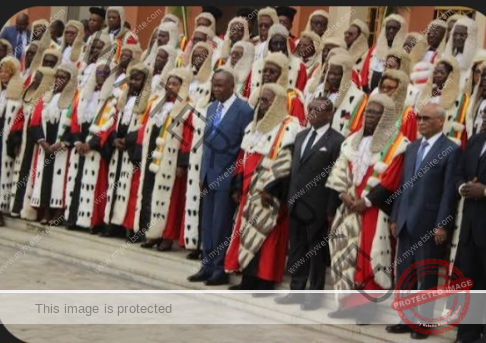
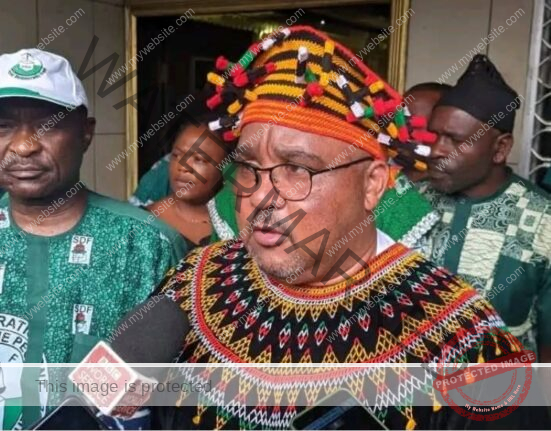
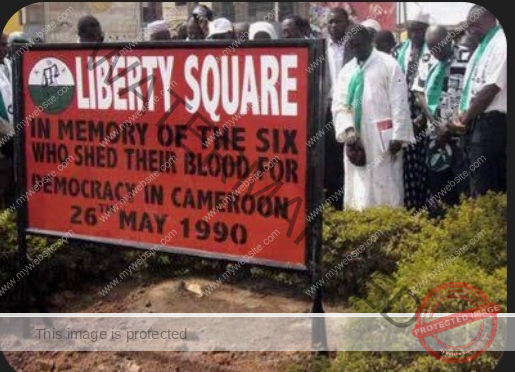


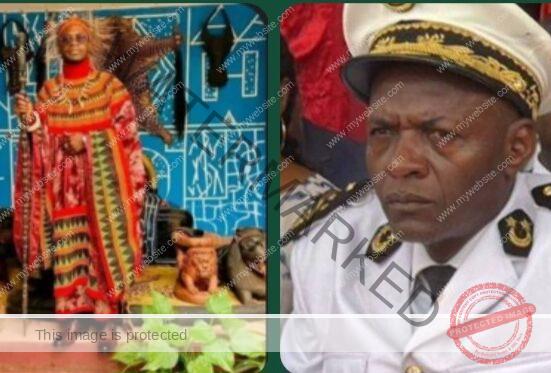
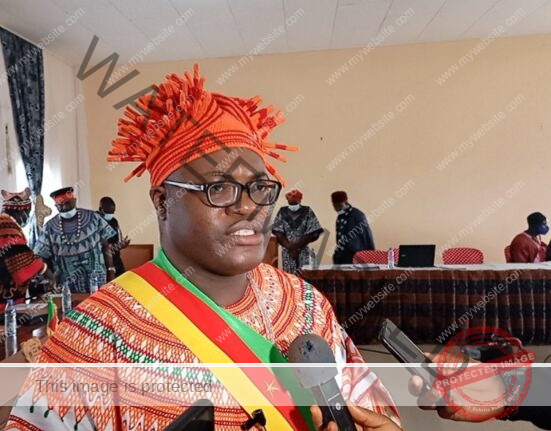

Leave feedback about this